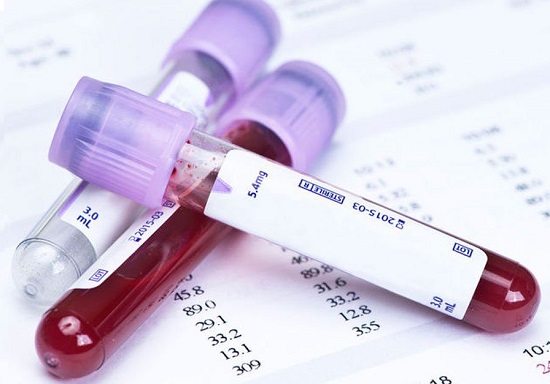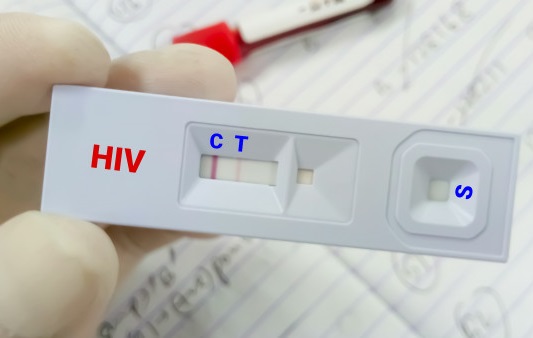CKD in Africans: Causes and Symptoms | Management of CKD in Africans
Chronic Kidney Disease in Africans: Diagnosis and Prevention
By Chinedu Akpa. B. Pharm. Freelance Health Writer, with medical and editorial review by the DLHA Team
.jpg)
Because many people with CKD do not have significant symptoms over a long duration of the active disease, they frequently learn about it during routine checkups. Notwithstanding, the diagnosis of CKD will starts with your doctor listening to your complaints, if you have any, and checking you up physically.
.jpg)
A young black doctor in empathetic consultation with a black patient.
Your doctor will take your history and ask many questions, including your past medical problems, like history of hypertension, diabetes, tuberculosis, HIV, autoimmune disorder, recurrent urinary tract infection and more. In addition, your doctor would ask about your work, your alcohol and drug use, and whether you have been hospitalised or had an operation before. Your doctor would ask about your appetite, weight gain, and if you have any nausea and vomiting
Your doctor will also ask about your medication use, particularly the use of herbal remedies containing aristolochic acid, and pain medications commonly known as NSAIDs like ibuprofen as well as acetaminophen. [8]
Next your doctor will perform a physical assessment (clinical physical examination) on you and will be looking out for these signs and more as you may have:
After the physical examination, your doctor would likely order specific diagnostic tests to be performed in order to confirm the existence of CKD. These tests help to dispel any doubts regarding the condition and include various laboratory and imaging tests. [9]
The common laboratory tests your doctor may order include:

Containers with human blood for testing
In view of the role of the kidney in maintaining blood health, a complete blood count or CBC is a necessary test in the diagnosis of chronic kidney disease. A complete blood count identifies the count of red cells, white cells and a special type of cells called platelets in your blood. If these levels are low, they may indicate that you have kidney disease.
We have seen earlier in the description of the functions of the kidney that it regulates salt and mineral levels in blood as well as the acidity (or pH) of blood and maintains them at a balance conducive to good health through its filtration, reabsorption and secretion processes. These functions of the kidney are affected in CKD, which is why blood electrolyte tests for levels of sodium, potassium, magnesium, calcium, phosphorus and chloride are performed to determine the state of health of the kidney and monitor progression as well as treatment improvements in CKD.
Typically in CKD, the blood level of potassium is high (a condition called hyperkaliemia) and the blood level of sodium is low (a condition called hyponatremia). Both conditions are hazardous to health and can cause death in CKD if not skillfully corrected.
CRP is produced and regulated by the liver and it is a reliable marker of inflammation in the body. It is a significant indicator of cardiovascular risk and a predictor of death in CKD. It is important to identify CKD patients with high CRP early in order to manage their cardiovascular risk and reduce the odds of death.

HIV screening test.
There is a high prevalence of Human Immunodeficiency virus disease (HIV) in Africa and people living with HIV that have high viral load, low CD 4 count and those on medication, are at high risk of developing CKD. This happens because HIV infects the cells of the kidneys and harms the nephron, thereby interrupting their filtration function. Some of the medication used to treat HIV also may harm the nephron when not properly monitored.
For these reasons, it is important to screen for HIV in patients with suspected CKD and screen for CKD in HIV patients on medication.

A common blood component called protein should ideally not pass through your kidneys and be present in your urine. If present, the condition is called proteinuria.
Your doctor would be interested in knowing if you have proteinuria and to what amount. The information could indicate a kidney problem. Typically, two types of urine tests are performed and include, the urine dipstick test and urine albumin to creatinine ratio.
Creatinine is a marker for how well your kidneys are working. It is produced in your muscles and enters the blood to be filtered in urine as waste. Males typically have levels of 0.7-1.3 mg/dl of creatinine in their blood, while females typically have 0.6-1.1 mg/dl. Any number higher than this could indicate that your kidney is no longer functioning properly to regulate the amount of creatinine in your blood.
Your body produces urea nitrogen as a waste product when it breaks down the protein in food. This substance should be eliminated from the blood into the urine by a healthy kidney. There exist physiological thresholds of BUN in blood that are widely acknowledged as normal. When this is exceeded, it may suggest that the kidney may have suffered damage. Typical numbers fall between 7 and 20 mg/dL.
It's a blood test that determines how well your kidney removes wastes, toxins, and extra fluid from the body. Your kidneys may not be functioning properly if your GFR is less than 60. If your GFR is less than 15, you may require kidney transplantation or dialysis.
As at the current state of knowledge, imaging the kidney (Ultrasound and MRI scans) and are not as helpful in the assessment of function in Chronic Kidney Disease (CKD) compared to the laboratory tests for GFR, proteinuria, etc. However, standard ultrasound scan – which uses sound waves to visualise internal organs on a computer screen – is able to measure aspects of kidney structure like its longitudinal length and thickness. These measurements have been found helpful in the follow up of the progression of CKD and in the estimation of function loss. A special type of ultrasound scan, called the Doppler scan can also be perormed to gain insight into the architecture of the blood flow through the kidney in the assessmet of of its filtration function.
In addition to increasing blood pressure, CKD can lead to: [10]
Various strategies have been used to manage these complications as discussed here.
Although CKD has hereditary components, you can lower your risk of developing the illness by taking preventative measures to address the modifiable risks.
Here are seven golden rules you should follow for preventing chronic kidney disease, according to the National Kidney Foundation [11]
The adage "prevention is cheaper than cure" is true, but you may face significant obstacles while attempting to prevent chronic kidney disease. Some of the obstacles include:
It is important that African governments at various levels provide enabling environment and adequate funding to public health managers to reduce or remove the obstacles their people face in preventing chronic kidney disease.
As chronic kidney disease may not cause significant symptoms, the diagnosis is often made at the time of routine medical checkup. For this reason, people who do not undertake regular medical checkups may receive a diagnosis of chronic kidney disease at advanced stages.
The diagnosis of CKD follows a standard process wherein your healthcare provider takes your history, performs a physical check (examination) and orders some test to confirm the clinical impression.
Although unknown causes of CKD may not be preventable, but there are steps you can take to lower your risk of known contributors to CKD. In doing so as an African, you may face some obstacles in your effort to prevent CKD. These obstacles are highlighted and the roles that African governments and public health managers can play to support you in your prevention efforts are discussed.
← CKD in Africa: Causes and Symptoms Management of CKD →
Related: The Kidney: What Every African Needs to Know
Published: September 29, 2024
© 2024. Datelinehealth Africa Inc. All rights reserved.
Permission is given to copy, use and share content freely for non-commercial purposes without alteration or modification and subject to source attribution
DATELINEHEALTH AFRICA INC., is a digital publisher for informational and educational purposes and does not offer personal medical care and advice. If you have a medical problem needing routine or emergency attention, call your doctor or local emergency services immediately, or visit the nearest emergency room or the nearest hospital. You should consult your professional healthcare provider before starting any nutrition, diet, exercise, fitness, medical or wellness program mentioned or referenced in the DatelinehealthAfrica website. Click here for more disclaimer notice.